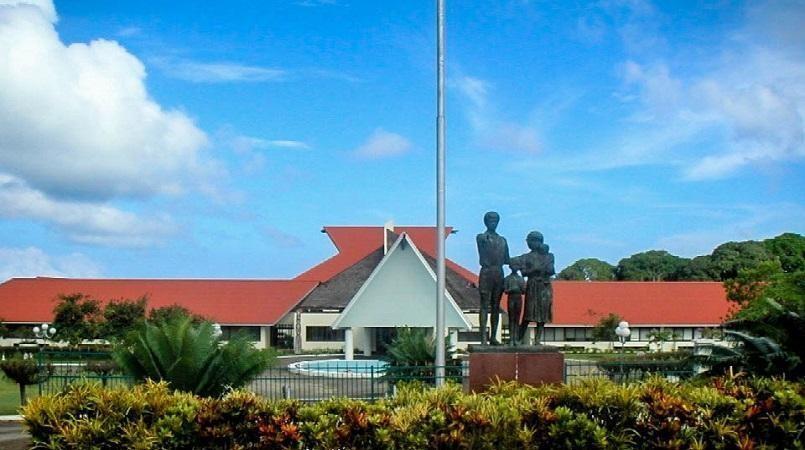
Journalists and social media moderators in Vanuatu could face up to three years in prison under a new bill that broadly criminalises threatening words, gestures and the “reckless” sharing of false statements.
Changes to the criminal libel and slander provisions of the South Pacific country’s Penal Code Act mean that Ni-Vanuatu could now face imprisonment for “any representation that is untrue or misleading” on public platforms including “television, radio, internet websites, social networking sites and blog sites”.
The amendments were passed by Vanuatu’s parliament on Monday and will become law once gazetted by the president.
Vanuatu’s Prime Minister, Bob Loughman, said that the changes were aimed at addressing how people talk on social platforms, but acknowledged its effects could be more far-reaching, Vanuatu’s Daily Post newspaper reported on Wednesday.
Dr Tess Newton Cain, programme leader of the Griffith Asia Institute Pacific Hub, told the Guardian that the broad wording of the amendments to the penal code could have “a significant chilling effect” on journalists and others expressing their opinions on everything from talkback radio to Facebook.
She noted that while freedom of expression was guaranteed by article five of Vanuatu’s constitution, it was also already “subject to a certain number of limitations”.
Placing libel under criminal rather than civil law places the responsibility to pursue complaints with police rather than the complainant, added Newton Cain, which she said “could have a very significant impact on whether journalists choose to progress stories”.
Gene Wong, publisher of the Daily Post, said he was “concerned” that the laws made libel and defamation part of the penal code instead of being a civil matter but that since mainstream media follow a code of ethics “we should be able to cover ourselves.”
Instead, Wong said that “the amendments appear to be directed against social media and in particular some Facebook sites”.
This raises particular concerns considering the popularity of social media groups in Vanuatu, such as the Facebook group Yumi Tok Tok Stret, which has 121,000 members, equivalent to more than one-third of Vanuatu’s population.
Dr Basil Leodoro, a surgeon and founder of Tasinga Telehealth Services, told the Guardian that social media provides “an avenue for citizens to express themselves, raise questions, interact, educate and possibly, contribute to social dialogue and government policy”.
In 2018, Leodoro was temporarily suspended from his job as a surgeon at a government hospital after raising questions in a Facebook post about the government’s allocation of disaster relief funds after a volcanic eruption.
Following community support for his reinstatement, Leodoro returned to work. Vanuatu’s Public Service Commission later claimed he was suspended for a different reason.
Leodoro said he was interested to see how people would respond to the amendments and whether they would be enforced. “Social media and its influence on any democracy and life in general, is unavoidable,” he said.
Stevenson Liu, president of Vanuatu’s media industry organisation MAV, said the association was encouraged the prime minister had said the act could be amended, adding that MAV would ensure the media continued its “role as a watchdog against possible corruption.....
Photo file RNZ Pacific Caption: Vanuatu Parliament
